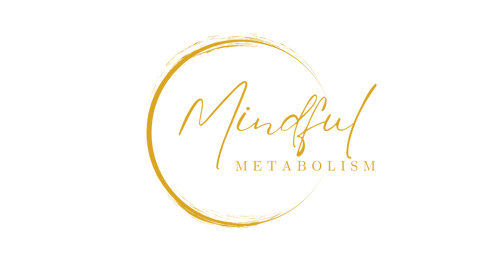The Importance of Dietary Fats for Hormonal Health
Discover how dietary fats impact hormonal balance and overall well-being. This educational blog breaks down the role of healthy fats in supporting metabolism, energy levels, and long-term health.
Benjamin Tuckley
3 min read


The Importance of Dietary Fats for Hormonal Health: Why You Need Healthy Fats
When it comes to nutrition, dietary fat has often been misunderstood and unfairly demonised. However, fats play a critical role in many of the body’s processes, particularly in hormonal health. Without adequate healthy fats, your body struggles to produce key hormones, regulate inflammation, and maintain overall balance.
In this blog, we’ll explore why dietary fats are essential for hormonal health, how they impact metabolism, and which fats are best for supporting optimal health.
Why Fats Are Essential for Hormones
Hormones are chemical messengers that control numerous functions in your body, including metabolism, mood, immune response, and reproductive health. The production and regulation of these hormones depend on adequate dietary fat intake. Here’s how:
Hormone Production
Many hormones, including key sex hormones like oestrogen, testosterone, and progesterone, are derived from cholesterol. Without sufficient dietary fat and cholesterol, your body can’t produce these vital hormones, potentially leading to imbalances.Cell Membrane Integrity
Every cell in your body is surrounded by a membrane made of lipids (fats). Healthy fats ensure that these membranes remain flexible and functional, allowing hormones to bind to cells and trigger the right responses.Inflammation Regulation
Certain fats, such as omega-3 fatty acids, help reduce inflammation. Chronic inflammation can disrupt hormone balance and interfere with processes like insulin signalling, leading to metabolic dysfunction.
Fats and Metabolism: A Vital Connection
Fats don’t just play a role in hormone production—they also directly impact your metabolism:
Sustained Energy: Unlike carbohydrates, fats provide a slow, steady source of energy. This helps maintain stable blood sugar levels and prevents energy crashes that can lead to overeating.
Satiety: Healthy fats trigger the release of hormones like leptin, which signals to your brain that you’re full. This helps regulate appetite and prevents overeating.
Improved Fat Utilisation: A diet rich in healthy fats trains your body to become more efficient at burning fat for fuel, rather than relying solely on carbohydrates.
Common Hormonal Issues Linked to Low-Fat Diets
Low-fat diets became popular in past decades, but research now shows that depriving your body of fat can have serious consequences, particularly for hormonal health. Common issues include:
Irregular Menstrual Cycles
Without enough fat, oestrogen levels can drop, leading to irregular or missed periods. This is especially common in women who follow extremely low-fat or low-calorie diets.Low Libido
Fats are crucial for producing sex hormones like testosterone, which is important for maintaining libido in both men and women. Low-fat diets can decrease testosterone levels, resulting in reduced sexual desire and energy.Mood Swings and Anxiety
Dietary fats, particularly omega-3s, play a key role in brain health and mood regulation. Deficiencies in healthy fats have been linked to increased anxiety and mood swings.
The Best Fats for Hormonal Health
Not all fats are created equal. While unhealthy trans fats and highly processed vegetable oils can contribute to inflammation and poor metabolic health, the right types of fats can support hormonal balance. Here are the best fats to include in your diet:
Monounsaturated Fats
Found in foods like avocados, olive oil, and nuts, monounsaturated fats help reduce inflammation and support heart health.Omega-3 Fatty Acids
These essential fats, found in fatty fish (salmon, mackerel, sardines) and flaxseeds, are powerful anti-inflammatories that help regulate hormone production and balance.Saturated Fats
Despite past controversies, saturated fats from high-quality sources like grass-fed meat, butter, and coconut oil are vital for hormone production and overall health.Cholesterol-Rich Foods
Foods like eggs and shellfish provide cholesterol, a building block for many hormones. Consuming these in moderation can support optimal hormonal function.
Practical Tips for Incorporating Healthy Fats
Add Fats to Every Meal
Make sure each meal includes a healthy fat source. Drizzle olive oil over salads, cook vegetables in butter or coconut oil, and add avocado or nuts to your meals.Choose Whole Foods Over Processed Oils
Focus on whole food fat sources rather than processed oils. Stick to olive oil, butter, and ghee for cooking, and avoid seed oils like sunflower, soybean, and canola, which are highly inflammatory.Balance Your Omega-3 and Omega-6 Intake
Modern diets tend to be too high in omega-6 fatty acids (found in processed foods) and too low in omega-3s. Aim to include more omega-3-rich foods like fatty fish or consider a high-quality fish oil supplement.
Key Takeaways
Healthy fats are a cornerstone of hormonal health, impacting everything from mood and energy to reproductive health and metabolism. Ensuring you consume the right types of fats can help balance your hormones, reduce inflammation, and improve overall well-being.
Whether your goal is to feel more energetic, improve your mood, or support long-term metabolic health, don’t fear fat—embrace it. By choosing high-quality sources of dietary fat, you’re giving your body the tools it needs to function optimally.
Click below to discover how to improve your metabolism and well-being by joining a growing, vibrant community of like-minded individuals.
Disclaimer: This blog is for educational purposes only and is not intended as medical advice.
Health
Learn about metabolism, hormones, and inflammation.
Support
Benjamin@learnmetabolism.com
© 2024. All rights reserved.
